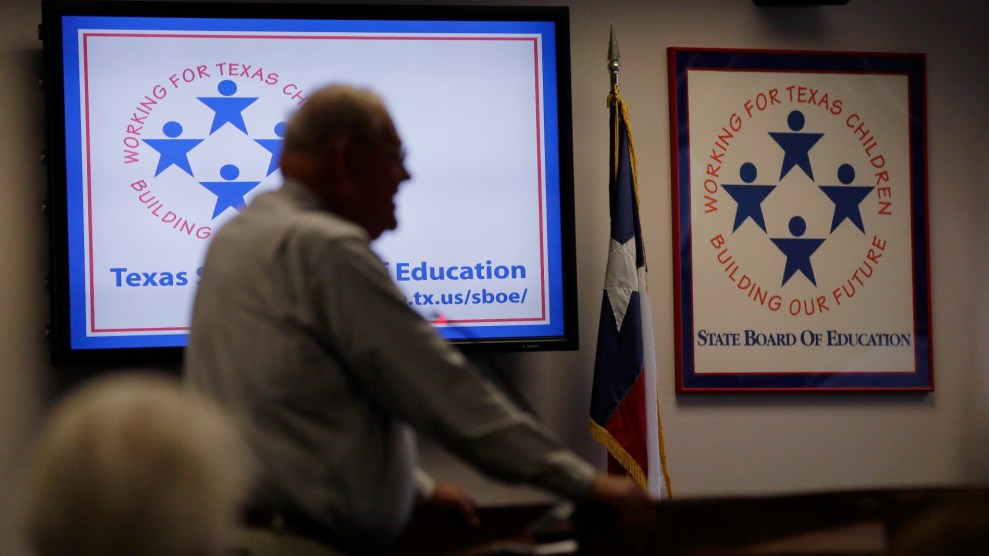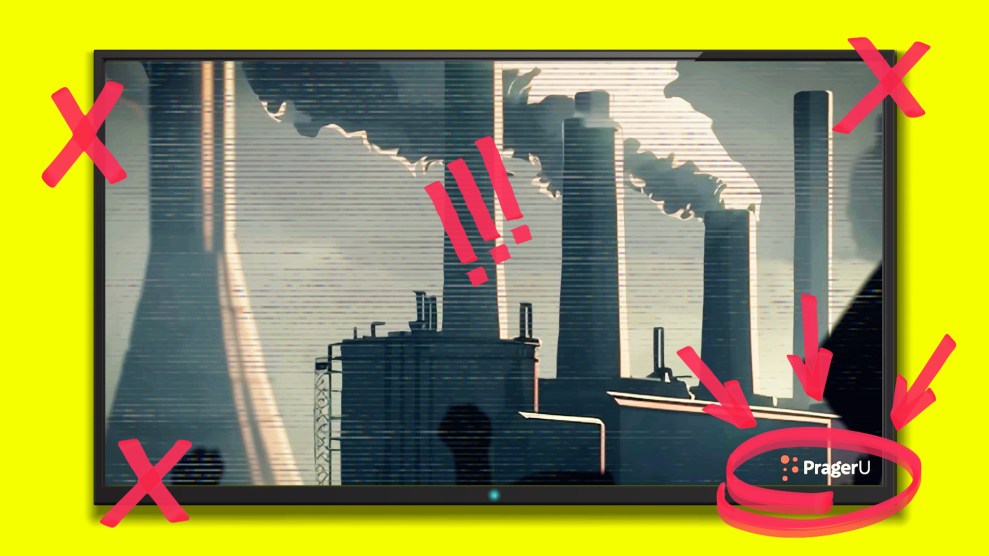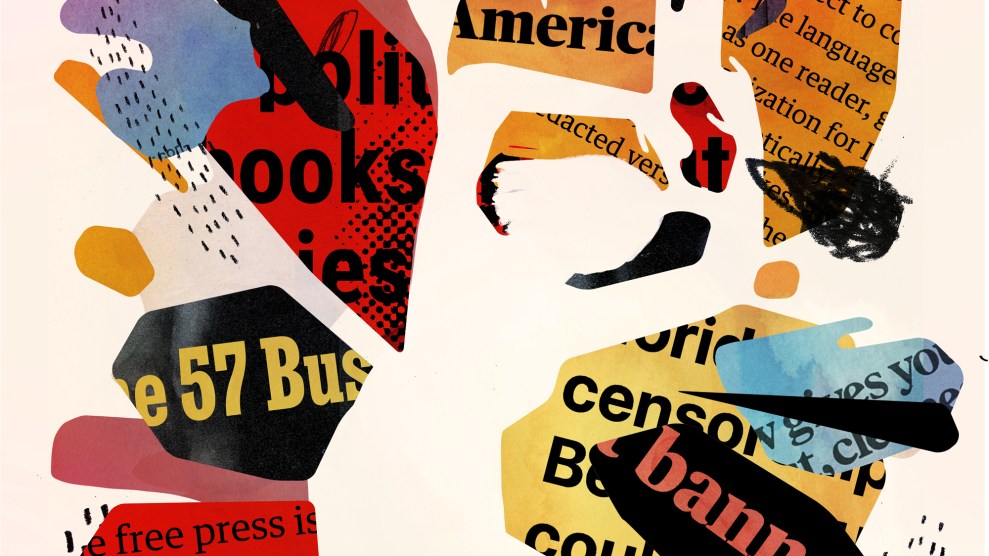
Retired school teacher Anthony Bruner testifies before the Texas Board of Education public during a public hearing raising objections to proposed history books.Eric Gay/AP
This story was originally published by Inside Climate News and is reproduced here as part of the Climate Desk collaboration.
Just a week after Texas voters approved billions of dollars to build new gas-fired power plants, the state’s education board will decide if it wants schools using science textbooks that acknowledge that burning fossil fuels warms the planet.
The Texas Board of Education could vote as early as Tuesday on whether it will recommend school districts to use a batch of new science textbooks, which include accurate descriptions of the causes and effects of climate change. While recommendations by the Republican-dominated board do not carry legal weight, they have an outsized influence on the educational priorities in Texas and can have rippling effects in other school districts nationwide.
Before the board votes, it will hear testimony from the public, including from the state’s top energy regulator, who is urging the board to reject the books, saying they “could promote a radical environmental agenda.”
In a letter addressed to the board on Nov. 1, Republican Railroad Commissioner Wayne Christian criticized climate science as a “woke environmental agenda” and encouraged the board to adopt books that promote the importance of fossil fuel energy.
“Despite what the mainstream media reports, the debate over climate change is far from settled, as none of the catastrophic events they predicted in the last 20 years have occurred,” Christian wrote. “These catastrophists are using the CO2 boogeyman and the threat of apocalypse to frighten people into submission.”
That message appears to fall in line with guidance the state education board adopted earlier this spring, which urges schools to emphasize the “positive” aspects of fossil fuels in science textbooks, E&E News reported.
There is overwhelming consensus among peer-reviewed research on climate change, which shows that Earth’s average temperature has risen at an unprecedented rate since the Industrial Revolution, predominantly because humans have been burning fossil fuels. The world has already warmed about 1.2 degrees Celsius above pre-industrial levels, and climate scientists say the planet is on track for 3 degrees of warming by the end of this century if fossil fuel production isn’t drastically reduced in the coming years.
The result of such warming, scientists warn, will be that the kind of extreme weather experienced this summer will become even more frequent and severe. This week, a new peer-reviewed study found that the last 12 months were the hottest ever recorded on Earth, with climate change largely responsible for the record-high temperatures felt by much of the world between November 2022 and October 2023.
Despite that evidence, Republican lawmakers and right-wing activists have increasingly framed climate science through culture war rhetoric, often downplaying the consequences of global warming and spreading misleading and false claims about its causes—including that natural phenomena are responsible.
This spring, for example, former Arkansas Gov. Mike Huckabee published an educational magazine aimed at children titled “The Kids Guide to the Truth About Climate Change,” which some education advocates denounced as ideological propaganda. The magazine asserts that climate change is occurring as part of the planet’s natural cycle and ignores the scientific evidence that shows that temperatures warmed 10 times faster in the last century than they did in the previous 5,000 years—a trend change that corresponds with industrialization and fossil fuel use.
In fact, climate change is now among the several topics that conservative politicians call “woke” and are attempting to ban from being taught in schools.
Book bans in the United States have skyrocketed in recent years, jumping 400 percent this year compared to last year, according to the free speech advocacy nonprofit PEN America. The group has tracked more than 2,800 individual book titles that have been banned by school districts in the last two years alone, with nearly 6,000 instances of a district implementing some kind of ban policy.
Texas has implemented more book bans than every other state except Florida, a recent PEN America report found, with 625 bans currently in place as of this summer. Authors whose books are targeted are most frequently female, people of color and individuals who identify as LGBTQ, the report noted.
In that sense, if the Texas Board of Education decides to oppose the use of the new science textbooks, which accurately describe climate change, it may encourage some school districts to ban such books from being used in their classrooms and potentially create a new generation of climate skeptics.















